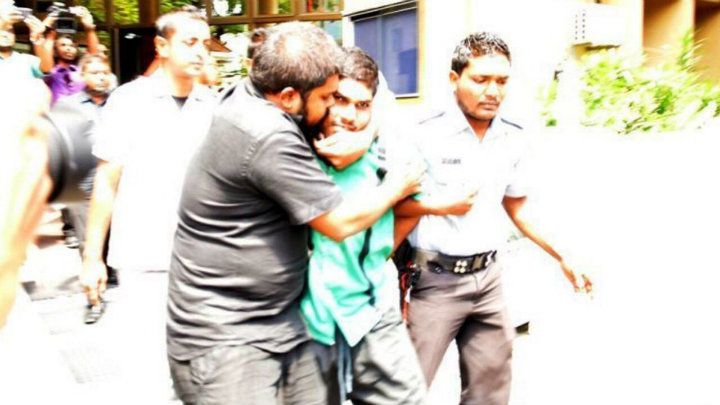Family of Afrasheem murder convict call for inquiry against judge
Hussain Humam Ahmed, 22 years, may become the first Maldivian to be executed by the state in some 60 years if the Supreme Court finds him guilty of murdering MP Dr Afrasheem Ali. His family is urging the judicial watchdog to investigate judges for alleged due process violations.

08 Mar 2016, 9:00 AM
The Supreme Court is preparing to review the murder conviction of Hussain Humam Ahmed, sentenced to death over the high-profile murder of MP Afrasheem Ali. If the guilty verdict is upheld, the 22-year-old may be the first Maldivian to be executed by the state in 60 years.
Humam’s father, who has long-claimed that his son did not receive a fair trial, lodged a complaint with the judicial watchdog on Sunday requesting an inquiry into due process violations.
Humam, then 19 years, was arrested within hours of Afrasheem’s wife discovering her husband’s body, hacked to death, in the stairwell of their home on October 2, 2012.
The murder was politically motivated, the police said at the time. But three and a half years on, the masterminds behind the murder have not been identified. Afrasheem’s killing, however, has provided fodder for Malé’s political mills with defectors from the ruling party alleging President Yameen’s involvement, a claim he has denied.
Become a member
Get full access to our archive and personalise your experience.
Already a member?
Discussion
No comments yet. Be the first to share your thoughts!
No comments yet. Be the first to join the conversation!
Join the Conversation
Sign in to share your thoughts under an alias and take part in the discussion. Independent journalism thrives on open, respectful debate — your voice matters.




